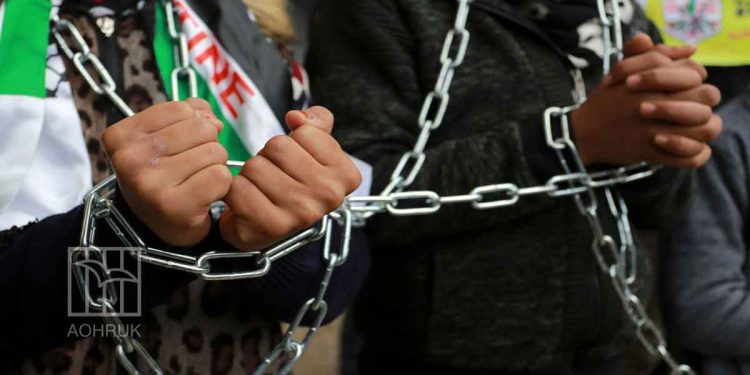The Israeli occupation including its judiciary continues to use administrative detention, or detention without trial, including against Palestinian prisoners with serious health conditions. All of those detained via administrative detention are being denied even the most basic of rights, that of the right to a fair trial.
In a protest against administrative detention, fifty Palestinian detainees across the occupation’s prison system continue their open-ended hunger strike. Striking prisoners include those administratively detained and other detainees.
Yesterday, 9 October, 20 more detainees joined 30 prisoners who had reached their sixteenth day of hunger strike against administrative detention.
The 30 detainees have begun to show signs of extreme fatigue, weight loss, and emaciation, as a result of a lack of fluids and vitamins.
The condition of the prisoner Jihad Shriteh, one of the striking prisoners, is particularly bad. He has been transferred to the Ofer prison’s clinic.
All the administrative detainees on hunger strike are also boycotting every level of the Israeli judicial system, in protest against the order.
Such tactics are a response to the increased use of administrative detention by the occupation, with the number of administrative detainees now approximately 780, including children, women, the elderly, and the sick.
Between 2015-2021, the occupation authorities issued more than 9,500 administrative detention orders. Since the beginning of this year, they have issued approximately 1,650 such orders, with a monthly record of 272 issued over August.
Administrative detention involves detention without charge or trial, and is based on case files to which neither the detainee nor their lawyers have access. Issued under the auspices of the military, administrative detention orders can last for a maximum of six months, but can be renewed unlimited times.






























